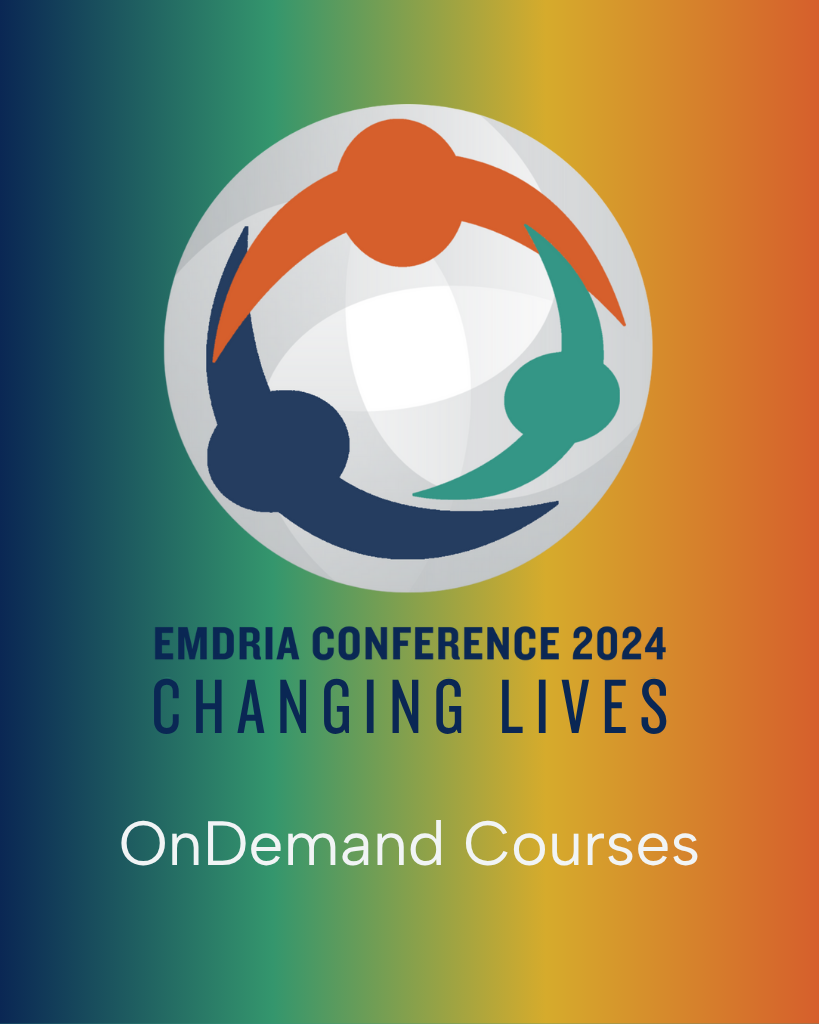Course Description
Did you know that 20% of people have a disability whether it’s developmental, cognitive, physical, or mental and many have co-occurring diagnosis and disabilities? Persons who identify with a disability are up to 4 times more likely to experience trauma than persons who do not. This makes the use of trauma treatment and resilience building methods such as EMDR a critical component in healing. One of the wonderful things about EMDR is that it does not discriminate as it empowers all individuals to adaptively face their realities and heal via such processes as cross neural plasticity. Via lecture, handouts, guided activities, and client videos, this workshop compares the similarities in how trauma and disability is defined, reviews the Adaptive Information Processing Model (AIP) as it relates to persons with a disability, familiarizes participants with cultural terminology and describes adaptations of EMDR methods that accommodate disabilities throughout the eight phases.
Learning Objectives
- Participants will be able to compare similarities in how we define and understand trauma and disability.
- Participants will be able to discuss AIP and other functions of the brain as it applies to persons with a disability.
- Participants will be able to apply at least 3 ways to make EMDR phases 1-8 more accessible to clients with a variety of disabilities.
Presenter(s)
Kriss Jarecki, LCSW-R
Kriss Jarecki, LCSW-R, is an EMDRIA Approved Consultant, EMDR Basic Trainer and Advanced EMDRIA Credit Provider. Kriss currently serves on the EMDRIA Board of Directors and was a co-regional coordinator for 10 years. She created courses on trauma and shame and trauma and disability for the University of Buffalo School of Social Work and published articles in the Journal of EMDR Practice and Research, as well as Traumatology and Counseling. She also provides training such as A Tour of Trauma Sensitive Techniques, IFS Meets EMDR and Queer Affirmative EMDR. Kriss presented on using EMDR with Disabilities at the EMDRIA Conference 2022, EMDR Canada Conference 2022 and EMDRIA Summit 2024.
Date
September 14, 2024
Presented by
Kriss Jarecki
Run Time
180 minutes
EMDRIA Credits
3
NBCC Credits
3
Client Population
Disabilities
Cost (member)
$70
Cost (nonmember)
$95
Publisher
EMDR International Association
Rights
The presenter(s) retains control over the publishing and copyright of this presentation/course.
APA Citation
Jarecki, K. (2024, September 14). A Journey from Trauma to Resiliency: EMDR and Persons with a Disability [Online Course]. EMDR International Association. https://www.pathlms.com/emdria/courses/106899
Audience
EMDR Therapists
Language
English
Content Type
Course
Original Source
Conference 2024, OnDemand Education
Access Type
Paid Access


